The addiction treatment industry is both highly regulated and highly sensitive due to the nature of this medical condition. Marketing efforts must therefore walk a fine line: it needs to be effective without being aggressive; compassionate without sounding clinical; and compliant without being invisible.
These challenges are only overwhelming on paper because, thankfully, we now have several marketing tools and strategies available in today’s digital landscape. Among these, email marketing stands out as one of the most powerful—but only when used right.
Combined with other digital marketing efforts, email marketing can help rehab facilities reach more people who are in need of their services. Here we will talk all about how to use email marketing effectively in the addiction treatment space to maximize your impact.
Why Email Marketing Matters for Addiction Treatment Centers
Today’s digital age is filled with social networking platforms, mobile apps, and constant digital noise. It’s easy to assume that email marketing has become outdated after all these new developments were introduced.
But this is far from the truth. In fact, email is still one of the most direct, personal, and cost-effective ways to reach people online. For rehab centers, email marketing can help them reach individuals who may be in vulnerable situations or actively seeking help.
Used strategically, your emails can help build trust, deliver critical information, and develop lasting relationships with potential clients and their families.
Personalization and Relationship Building
Email tends to feel very personal, so using it correctly will allow your rehab center to connect with individuals on a more personal level. Marketing experts usually segment email lists based on interests, behaviors, or stages in the recovery journey to send tailored messages that resonate with each recipient. This way, it doesn’t feel like spam.
From welcoming new subscribers to sharing inspiring recovery stories or tips for family members, personalized content shows that the center genuinely cares. Over time, these customized communications will lead to long-term relationships that can encourage people to take that leap of faith towards recovery.
Cost-Effective and Scalable
Unlike many forms of traditional advertising, email marketing is both budget-friendly and easy to scale. Treatment centers can reach hundreds or even thousands of people with a single well-crafted campaign—without the high costs of print media or paid digital ads.
Email tools also provide valuable metrics—like open rates and click-throughs—that help marketers understand what kinds of content resonate and how to improve future outreach. If you are looking to maximize your outreach and your impact, even with limited resources, email marketing is an efficient strategy and a smart investment.
Compliance and Trust
For addiction treatment centers, compliance with HIPAA (Health Insurance Portability and Accountability Act) and other privacy regulations is essential. Email marketing platforms offer tools to ensure that messages are secure, opt-ins are handled correctly, and personal data is protected.
When a center maintains ethical standards and provides valuable, timely information through email, it reinforces their credibility, positioning their organization as a trustworthy resource in the recovery journey.
Building a Compliant Email List
Before you send a single email, you need to build your list the right way. Compliance in email marketing is critical because addiction treatment facilities handle highly sensitive, personal, and often legally protected health information. Failing to comply with regulations such as HIPAA and CAN-SPAM can lead to legal consequences and penalties. It can even damage the center’s reputation.
Proper compliance ensures that marketing messages are sent ethically, respectfully, and lawfully, which benefits everyone involved.
Email Marketing Compliance Do’s and Don’ts
Do’s:
- Obtain explicit consent before sending marketing emails (opt-in).
- Use a professional email platform that supports compliance features like unsubscribe links and list management.
- Include a clear and easy-to-find unsubscribe option in every email.
- Use accurate sender information and subject lines to avoid misleading recipients.
- Encrypt and protect sensitive data to maintain HIPAA compliance if any personal health info is involved.
- Keep records of consent and interactions for accountability.
Don’ts:
- Don’t send unsolicited emails—especially to people seeking confidential help.
- Don’t share or sell email lists, particularly those containing health-related inquiries.
- Don’t include personal health information (PHI) unless the email system is HIPAA-compliant and you have the individual’s written permission.
- Don’t use manipulative or deceptive language, such as false claims or scare tactics.
- Don’t ignore unsubscribe requests—failure to honor them is a CAN-SPAM violation.
Remember, compliance isn’t just a legal requirement—it’s also a matter of ethics. Your audience is already in one of the most uncomfortable stages of their lives. It is vital to respect their privacy and trust.
Email Content Strategy for Treatment Centers
The biggest mistake treatment centers make with email marketing is making it all about themselves. Instead, your campaign should focus on helpful, empathetic, and human-centered content. Here are content types that generally work well:
Educational Content
One of the main purposes of email marketing is to establish your treatment center as a trusted resource. Providing educational content helps with that.
Using email, share content that covers a wide variety of topics such as the signs of substance abuse, how addiction affects the brain and body, and the different stages of recovery. You can even talk about what families can expect during treatment to ease their worries and demystify the rehab journey.
This kind of content empowers recipients with knowledge while subtly reinforcing your center’s expertise and commitment to helping people make informed decisions.
Inspirational Stories
Real recovery stories humanize your work and inspire hope. Share testimonials from alumni that detail their journey from addiction to recovery. These narratives show that recovery is possible, encouraging more people to seek help. Inspirational stories are especially powerful for individuals who feel isolated or hopeless, offering a real-world glimpse into the future they could have.
Just make sure you focus on authenticity and that the testimonials you showcase are shared with the consent of the people being featured.
Family-Focused Resources
Families are often the ones seeking help first, and they need support too. Offer resources that address family dynamics, how to set boundaries, communicate with a loved one in recovery, and take care of their own well-being. When families feel understood and guided, they are more likely to trust your treatment center and stay engaged throughout their loved one’s healing process.
Alumni Outreach
Email marketing doesn’t have to be limited to new clients and leads—it can also include those who have already finished your programs. Continued engagement with alumni builds a strong recovery community and can boost referrals. Send emails that include invitations to alumni events, updates on peer support meetings, or tips for long-term sobriety. This shows that your center cares beyond the initial treatment phase and fosters lasting connections that support lifelong recovery.
Treatment Center Updates
While emails shouldn’t focus solely on self-promotion, occasional updates about your center can help build transparency and credibility. Share your new program offerings, introduce your staff, or showcase improvements to the facility. Even though you are promoting your center, remember to keep it personal and people-centered—highlight how these updates enhance care and create a more supportive environment for everyone who walks in.
Email Automation
Email automation offers significant value, especially for drug addiction treatment centers, because it enables consistent, timely, and personalized communication with prospective clients and their families. If you are using email, you should definitely consider investing in this.
Automated email sequences can nurture leads by providing helpful content about treatment options, success stories, FAQs, and steps to begin recovery—without requiring constant manual follow-up from staff. This helps ensure that individuals exploring treatment can receive the right information at the right time. This can be critical in moments of vulnerability or crisis.
Additionally, email automation helps centers maintain engagement with alumni, referral sources, and professional partners. By segmenting audiences and scheduling targeted messages, centers can strengthen their long-term relationships and increase referral opportunities.
Automation is just another tool to make your efforts more efficient—it doesn’t replace the human touch. In fact, it shouldn’t. Focus on automating only those parts of your email campaign that do not require actual communication such as sending content or sharing testimonials. Everything else requires a personal touch.
Combining Email with Other Digital Strategies
While email marketing is a powerful tool on its own, it should be used as just one part of a broader digital marketing campaign. It works best when integrated with other tried-and-tested strategies such as the ones listed below:
Search Engine Optimization (SEO)
SEO helps your treatment center rank higher on search engines like Google for relevant keywords, whether it’s “alcohol rehab near me” or “prescription drug detox center”. This is important because everyone uses search engines when they are ready to know more about the treatment process. Even better, SEO helps you connect with those who are actively looking into available treatment options.
When done correctly, SEO brings long-term visibility and organic traffic to your website, which means more potential clients discovering your center without the ongoing cost of ads. Optimized landing pages, blog posts, and local listings can also be linked in email campaigns, creating a seamless user journey from inbox to intake.
Google Ads and Pay-Per-Click Advertising (PPC)
Similarly, Google Ads and PPC campaigns also allow treatment centers to appear at the top of search results for specific queries almost instantly. This supports your organic SEO campaigns because that tends to take some time to gain traction. PPC provides immediate visibility and lead generation opportunities.
Combining PPC with email marketing allows you to retarget users who click on your ads but don’t convert, using personalized follow-up emails to guide them back to your site and into treatment.
Social Media Marketing
Social media platforms like Facebook, Instagram, and LinkedIn are not only widely popular, they are also incredibly useful for treatment facilities. These platforms offer a more informal—and engaging—way to connect with your target audience online.
On social media, you can post your educational content to further boost its visibility. Not only will you be bringing value to a much larger community, you will even reach people who may not discover your facility otherwise. Social media is perfect for establishing your rehab center as a trustworthy resource in this space because it humanizes your brand.
Combined with email marketing, you can use social networking platforms to share social updates, promote live events, and grow your follower base, ensuring that your audience stays engaged.
Reputation Management and Reviews
Online reviews and reputation management play an important role in how people perceive your addiction treatment center. Positive reviews build credibility and influence decisions, especially when people are considering sensitive healthcare choices. You can use email campaigns to follow up with satisfied clients and encourage them to leave reviews on platforms like Google or Yelp, enhancing your online reputation over time.
Referral Outreach
Referral outreach involves building and maintaining relationships with therapists, hospitals, and other healthcare professionals who can refer clients to your center. Email marketing makes this process more efficient by keeping referral partners updated on new programs, success stories, and admission availability.
A consistent referral email strategy keeps your center top-of-mind when they need to make a referral.
To maximize the effectiveness of email campaigns, it’s important to align them with other proven strategies such as the ones listed here. By combining your digital efforts, you can build a consistent brand presence, generate high-quality leads, and ultimately help more people get started on the path to sobriety.
Work with MasterMindSEO
Digital marketing in addiction treatment isn’t about lead generation—it’s about transforming lives. Every email you send, every ad you run, every blog you post may be someone’s first step toward recovery.
By integrating email marketing with thoughtful digital strategies, addiction treatment centers can extend their reach, build trust, and most importantly—help more people find the care they need.
Working with professional marketers who specialize in digital marketing firm can go a long way when it comes to promoting your services ethically. They can help you navigate the tricky landscape of addiction treatment marketing.
MasterMindSEO has experience in performing digital marketing campaigns for e-commerce, national, regional and local businesses. Email or call and we will be happy to see how we can help your center get more leads and help more patients!
Ready to take your addiction treatment SEO to the next level? Want to rank your detox center on Google Maps? Let MasterMindSEO help you.


